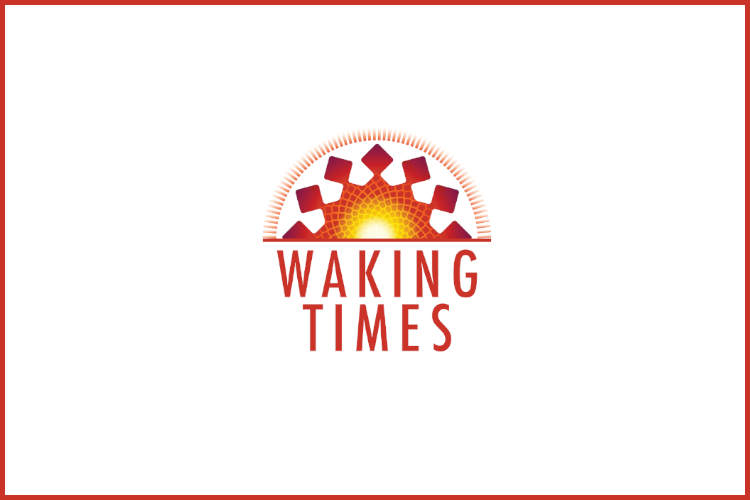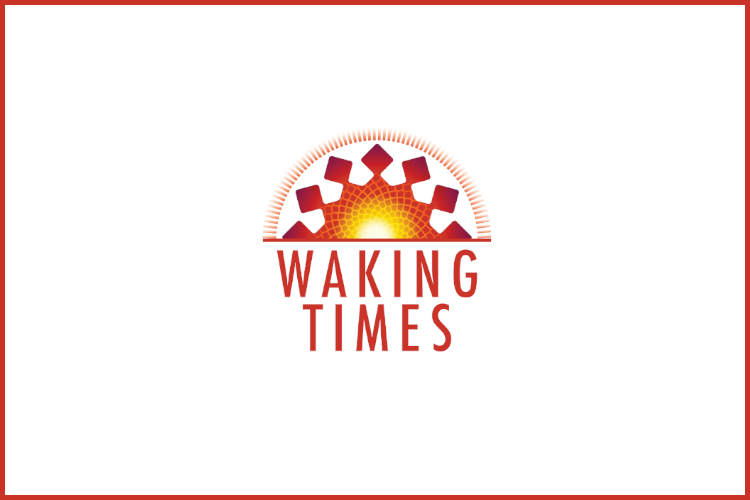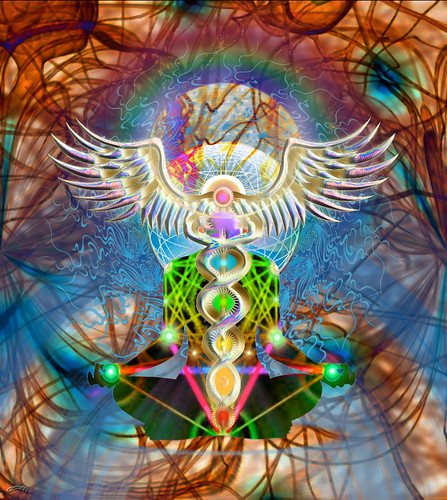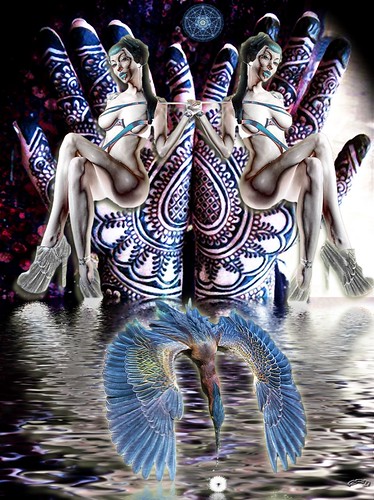What is Reiki?
How to Learn Energy Healing
A
Brief Overview
Reiki is a Japanese technique for stress reduction and relaxation that also promotes healing. It is administered by “laying on hands” and is based on the idea that an unseen “life force energy” flows through us and is what causes us to be alive. If one’s “life force energy” is low, then we are more likely to get sick or feel stress, and if it is high, we are more capable of being happy and healthy.
The word Reiki is made of two Japanese words – Rei which means “God’s Wisdom or the Higher Power” and Ki which is “life force energy”. So Reiki is actually “spiritually guided life force energy.”
A treatment feels like a wonderful glowing radiance that flows through and around you. Reiki treats the whole person including body, emotions, mind and spirit creating many beneficial effects that include relaxation and feelings of peace, security and wellbeing. Many have reported miraculous results.
Reiki is a simple, natural and safe method of spiritual healing and self-improvement that everyone can use. It has been effective in helping virtually every known illness and malady and always creates a beneficial effect. It also works in conjunction with all other medical or therapeutic techniques to relieve side effects and promote recovery.
An amazingly simple technique to learn, the ability to use Reiki is not taught in the usual sense, but is transferred to the student during a Reiki class. This ability is passed on during an “attunement” given by a Reiki master and allows the student to tap into an unlimited supply of “life force energy” to improve one’s health and enhance the quality of life.
Its use is not dependent on one’s intellectual capacity or spiritual development and therefore is available to everyone. It has been successfully taught to thousands of people of all ages and backgrounds.
While Reiki is spiritual in nature, it is not a religion. It has no dogma, and there is nothing you must believe in order to learn and use Reiki. In fact, Reiki is not dependent on belief at all and will work whether you believe in it or not. Because Reiki comes from God, many people find that using Reiki puts them more in touch with the experience of their religion rather than having only an intellectual concept of it.
While Reiki is not a religion, it is still important to live and act in a way that promotes harmony with others. Dr. Mikao Usui, the founder of the Reiki system of natural healing, recommended that one practice certain simple ethical ideals to promote peace and harmony, which are nearly universal across all cultures. During a meditation several years after developing Reiki, Dr. Usui decided to add the Reiki Ideals to the practice of Reiki.
The Ideals came in part from the five principles of the Meiji emperor of Japan whom Dr. Usui admired. The Ideals were developed to add spiritual balance to Usui Reiki. Their purpose is to help people realize that healing the spirit by consciously deciding to improve oneself is a necessary part of the Reiki healing experience. In order for the Reiki healing energies to have lasting results, the client must accept responsibility for her or his healing and take an active part in it. Therefore, the Usui system of Reiki is more than the use of the Reiki energy. It must also include an active commitment to improve oneself in order for it to be a complete system. The ideals are both guidelines for living a gracious life and virtues worthy of practice for their inherent value.
The secret art of inviting happiness
The miraculous medicine of all diseases
Just for today, do not anger
Do not worry and be filled with gratitude
Devote yourself to your work. Be kind to people.
Every morning and evening, join your hands in prayer.
Pray these words to your heart
and chant these words with your mouth
Usui Reiki Treatment for the improvement of body and mind
The miraculous medicine of all diseases
Just for today, do not anger
Do not worry and be filled with gratitude
Devote yourself to your work. Be kind to people.
Every morning and evening, join your hands in prayer.
Pray these words to your heart
and chant these words with your mouth
Usui Reiki Treatment for the improvement of body and mind
~
The founder, Usui Mikao

Reiki: A Healing Touch

by Bernard
Starr, Ph.D
It doesn’t look like much is happening. But people who receive the treatment report positive and sometimes striking results. I’m talking about Reiki, a healing treatment in the growing field of “energy medicine.”
Proponents say that energy medicine techniques balance the subtle vibrational fields which are believed to surround and interpenetrate the human form. While the specifics of energy medicine are sometimes hazy, there is underlying supportive and plausible scientific theory. Fact is, our bodies are made up of cells that on a deeper level contain elementary particles that emit electromagnetic forces. On a micro level, our bodies are energy in motion. Some health futurists say that down the line most medicine will be noninvasive manipulations of our energy fields.
That being said, to what extent do we currently understand these forces? Can they be safely accessed and combined with conventional medical care?
To answer some of these questions, I spent an afternoon with Pamela Miles, a leading Reiki master who recently published the first mainstream book about Reiki (“Reiki: A Comprehensive Guide,” Tarcher/Penquin 2006), suggesting that Reiki is catching on. I was impressed by Pamela’s work in prestigious medical and university settings, which also reflects a sea change in attitudes toward integrating noninvasive, subtle therapies into conventional medicine.
Here is my interview with Pamela aimed at getting the basics of Reiki.
Question: Pamela, what is Reiki?
Answer: Reiki is a spiritual or vibrational healing practice that promotes balance on every level — body, mind and spirit. Reiki treatment is offered through noninvasive, light touch to a clothed recipient.
Q. Describe how a Reiki session proceeds.
A. In a formal session, the recipient lies fully clothed on a treatment table, covered by a blanket if desired. Traditionally, the practitioner places hands lightly on the head and the front and back of the torso, with hand placements varying somewhat among different practitioners. Treatment usually lasts between 45 and 90 minutes, although in a hospital it is typically 15 to 20 minutes.
Q. What is its origin?
A. Reiki practice began with the teachings of Mikao Usui in Japan in the early 1920s. One of his close students, Chujiro Hayashi, was a medical doctor retired from naval service. Hayashi simplified the healing practices and helped his student, Mrs. Hawayo Takata, bring Reiki to the U.S. in 1938. Reiki is now practiced throughout the world.
Q. How is Reiki related to spirituality?
A. Reiki is a healing practice that enables people to access their own unique spirituality without dogma. Asian spirituality and medicine are intertwined; health is not seen as merely a lack of disease. Rather, spiritual development is valued as a cornerstone of overall health.
Q. How does Reiki compare or relate to other techniques that manipulate energy?
A. Actually, Reiki practitioners do not manipulate or direct energy. They merely provide a connection through which the healing pulsations called Reiki activate spontaneously according to the need of the receiver. Reiki practitioners remain passive during treatment. Although Reiki is healing, it is not medicine in the sense that it is not directed toward a specific goal. No diagnosis is needed, and the treatment plan is the same for every condition. Reiki is much subtler than other energy techniques, more akin to meditation than to energy medicine, and could be thought of as applied meditation. The actual experience of Reiki is usually quite meditative.
Q. What can Reiki do for someone?
A. Reiki is balancing, so it can theoretically help anyone in any situation. Since we all have our own ways of being unbalanced, the benefits of Reiki treatment are different for people at different times. But since we are usually unbalanced in the direction of stress, people commonly experience Reiki as stress-reducing, and there is increasing scientific evidence of this. Commonly reported benefits are improvements in sleep, digestion, mental clarity and overall well-being.
Q. What can’t it do?
A. Rather than say what Reiki can’t do, I would caution people to use their common sense. In an emergency, if you are Reiki-trained, dial 911 with one hand and offer Reiki with the other. You can safely use Reiki with any medical intervention or during any medical procedure. If you are on medication, it’s important to be monitored in case your need for medication changes. For example, diabetics often need less medication once they start receiving Reiki or practicing Reiki self-treatment.
Q. What evidence is there that Reiki works?
A. A few of the small studies that have been done so far have showed promising results for using Reiki to reduce stress, anxiety and pain. The data include objective measures (decreased stress hormones, improved immune indicators, decreased heart rate and improved blood pressure) as well as subjective improvements in anxiety and pain. One study showed benefits to people being treated for depression, and the improvements held when the participants were tested a year later. The National Institutes of Health currently has five research projects studying Reiki’s effect on stress, fibromyalgia, AIDS, prostate cancer, and diabetic neuropathy and coronary risk factors.
Q. Tell us about your successes in working with Reiki.
A. I have created Reiki programs in prominent New York City hospitals. Several years ago, through the nonprofit Institute for the Advancement of Complementary Therapies, I created a funded program that offers Reiki to outpatients at St. Vincent Hospital’s Comprehensive Cancer Center. The responses to our evaluation surveys are heartening. Approximately 95 percent of the patients who reported having anxiety or pain before receiving Reiki treatment said that their level of anxiety or pain was reduced after the treatment.
Q. How is it accepted in these settings?
A. On the basis of absence of risk and strong anecdotal evidence, Reiki is increasingly accepted in conventional medical settings, and is offered at prestigious hospitals around the country, including Memorial Sloan Kettering Cancer Center and New York-Presbyterian Hospital (New York City), M.D. Anderson Cancer Center (Houston), George Washington University Hospital (Washington, D.C.), California Pacific Medical Center (San Francisco), Dana-Farber Cancer Institute (Boston) and Yale/New Haven Hospital (New Haven, Conn.). I have created five Reiki programs in prominent New York City hospitals and have published a Reiki review paper in the peer-reviewed medical journal Alternative Therapies in Health and Medicine (March 2003).
Q. How do conventional physicians react to Reiki?
A. My experience has been very positive and rewarding. When Reiki is explained without making claims in language that is meaningful to physicians, they quickly see how valuable it can be for their patients and to themselves. Reiki can relieve anxiety and pain and strengthen a patient’s sense of well-being that is deeper than the disease. When patients feel better, they function better and are more likely to follow their medical protocols. Although chemotherapy kills the cancer cells, Reiki can be the therapy that enables a patient to stay healthy enough to receive the full course of treatment and make other needed lifestyle changes. Reiki can help a patient turn a life challenge into a healing passage.
Q. Can anyone do Reiki?
A. People of any age or state of health, who have the interest, can learn to practice in a class taught by a qualified Reiki master. The degree of competence developed will depend on how diligently the student practices. I have taught parents and young children — the children are often the ones to remind their moms of Reiki when there’s a kitchen accident or family illness. My oldest student was a Holocaust survivor in her early 90s. Reiki’s soothing touch is useful to people at every stage of life.
Q. What training is required?
A. You can only learn to practice Reiki from a qualified Reiki master. This is not a practice to be learned from a book or the Internet. I wrote my book about Reiki not to teach people how to practice but to help them understand the benefits of Reiki, and to provide guidance in finding a credible local practitioner. I also emphasize the importance of practicing consistently for learning self-treatment. First-degree practice is facilitated by light touch and is best learned in approximately eight to 12 hours of in-person class time. Other levels of practice require additional training.
Q. Can Reiki be self-administered?
A. Definitely. Reiki is equally effective in self-treatment or when received from someone else, regardless of one’s state of mental or physical health. I started teaching people with AIDS at Gay Men’s Health Crisis in New York City in the early 1990s and have trained people facing a wide range of other conditions, including cancer, fibromyalgia, heart disease, insomnia, panic attacks, epilepsy, diabetes, irritable bowel, depression, bipolar disorder, and recovery from surgery, injury, and abuse or trauma. Although Reiki can help people with any medical condition, it’s wise to start using Reiki while one is still healthy to help strengthen well-being rather to wait for disease to strike. But when there is a medical condition, learning Reiki self-treatment can enhance well-being, reduce side effects of medication, and speed recovery. Reiki provides an easy transition to a more healthful lifestyle.
Q. Any dangers?
A. Reiki has no known medical contraindications and can be safely combined with any medical or complementary therapy. I have administered Reiki during birth, at death, and in just about every intervening situation. Especially when arduous medical treatment is needed to address serious illness, Reiki can help care for the person while physicians focus their attention on the disease. However, since there is no standardization in Reiki training or treatment, it’s wise to question a Reiki practitioner before signing up for treatment or training with someone who claims to be a Reiki professional.
Q. What questions should be posed to a practitioner?
A. Ask about the practitioner’s training (with whom, how long, when) and experience (how many years, in what settings). Ask what the treatment will be like — it should be gentle touch primarily to the head and torso while you are fully clothed and lying or sitting comfortably. Beware a practitioner who makes promises or offers a diagnosis.
Prior to the interview, I received a Reiki treatment from Pamela and her assistant. It was a pleasant, relaxing and meditative 45 minutes. I definitely felt energized and renewed afterward. I can’t attest to any lasting effects, since it was one treatment. But I think it’s worth experiencing and learning more about Reiki. My guess is Reiki will get increasing attention in the coming years.
You can read excerpts from Pamela Miles’ book “Reiki: A Comprehensive Guide” (Tarcher/Penguin 2006) at www.ReikiInMedicine.org.
About the Author
Bernard Starr, Ph.D., formerly professor of developmental and educational psychology at the City University of New York, now teaches psychology and leads the Spiritual Forum at Marymount Manhattan College. In addition to his work in radio, he is a longtime contributor of commentary and opinion articles to numerous major publications. He is currently completing a book, “Escaping the Prison of the Self,” to be published by Rowman and Littlefield, that explores spirituality as a psychology of consciousness. His email address is OmniCns@aol.com. More information about Bernard.
Via Waking Times @ http://www.wakingtimes.com/2012/06/29/what-reiki-healing/
and http://www.wakingtimes.com/2015/07/19/reiki-a-healing-touch/
For more information about healing see http://nexusilluminati.blogspot.com/search/label/healing
For more information about chi see http://nexusilluminati.blogspot.com/search/label/chi
- Scroll down
through ‘Older Posts’ at the end of each section
Hope you like this
not for profit site -
It takes hours of work every day by
a genuinely incapacitated invalid to maintain, write, edit, research,
illustrate and publish this website from a tiny cabin in a remote forest
Like what we do? Please give anything
you can -
Contribute any amount and receive at
least one New Illuminati eBook!
(You can use a card
securely if you don’t use Paypal)
Please click below -
Spare Bitcoin
change?
Xtra Images by R. Ayana – https://farm8.staticflickr.com/7330/8730938597_b7a4180870_h.jpg
For further enlightening
information enter a word or phrase into the random synchronistic search box @
the top left of http://nexusilluminati.blogspot.com
And see
New Illuminati – http://nexusilluminati.blogspot.com
New Illuminati on Facebook - https://www.facebook.com/the.new.illuminati
New Illuminati Youtube Channel - https://www.youtube.com/user/newilluminati/playlists
New Illuminati’s OWN Youtube Videos
-
New Illuminati on Google+ @ For
New Illuminati posts - https://plus.google.com/u/0/+RamAyana0/posts
New Illuminati on Twitter @ www.twitter.com/new_illuminati
New Illuminations –Art(icles) by
R. Ayana @ http://newilluminations.blogspot.com
The Her(m)etic Hermit - http://hermetic.blog.com
DISGRUNTLED SITE ADMINS PLEASE NOTE –
We provide a live link to your original material on your site (and
links via social networking services) - which raises your ranking on search
engines and helps spread your info further!
This site is published under Creative Commons (Attribution) CopyRIGHT
(unless an individual article or other item is declared otherwise by the copyright
holder). Reproduction for non-profit use is permitted
& encouraged - if you give attribution to the work & author and include
all links in the original (along with this or a similar notice).
Feel free to make non-commercial hard (printed) or software copies or
mirror sites - you never know how long something will stay glued to the web –
but remember attribution!
If you like what you see, please send a donation (no amount is too
small or too large) or leave a comment – and thanks for reading this far…
Live long and prosper! Together we can create the best of all possible
worlds…
From the New Illuminati – http://nexusilluminati.blogspot.com


Nice blog..! I really loved reading through this article... Thanks for sharing such an amazing post with us and keep blogging. Astrologer in Sydney | Best Indian Astrologer in Sydney
ReplyDeleteFrom lots of experience, Permanent Zen Center offers traditional Reiki healing sessions and classes with experienced Reiki Masters in New York
ReplyDeleteVisit our YouTube channel to get information about How To Connect To Reiki Energy! In which you can learn to take care of your whole body by natural reiki methods.
ReplyDeleteThanks for sharing the informative article on Reiki. We are Reiki expert to provide healing services to heal your energy into the right direction.
ReplyDelete